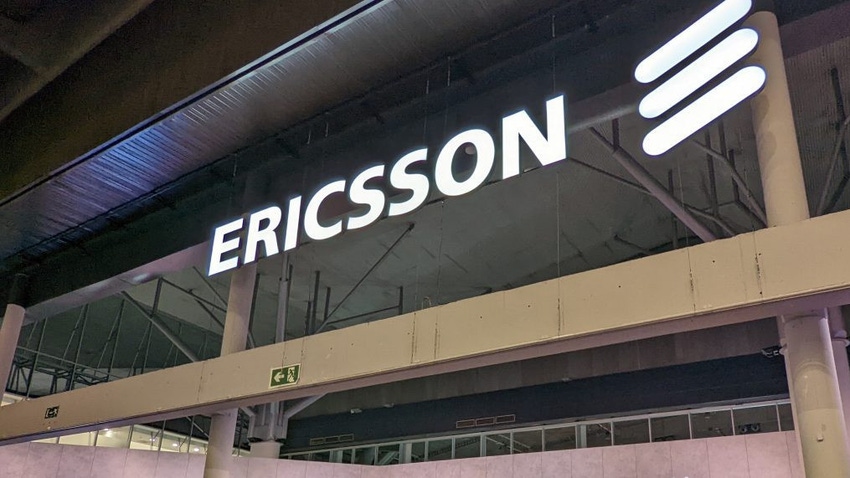Ericsson chief slams Europe for prioritising regulation over innovation
Ericsson CEO Börje Ekholm has become the latest to issue a warning about Europe's telecom competitiveness – or lack thereof – on the global stage.
March 28, 2024

Speaking at a regional investment banking conference in Tallinn, Estonia, Ekholm said Europe's lawmakers are prioritising regulation over innovation, to the detriment of telcos' scale and the ability of the industry to invest in new technology relative to the US, China and India.
"For an operator, scale matters, and European operators are subcritical in scale," he said. "The average number of subscribers per operator in Europe is 4.4 million – compared to 95 million in the US, 300 million in India and 400 million in China. Europe simply needs in-market consolidation."
It's interesting to hear the CEO of a vendor wishing he had fewer potential customers, but if anything it lends further credence to the argument that European operators can't afford to spend the same sums of money on kit that their counterparts in other parts of the world can. What's the point of having a large addressable market if it can't afford to buy enough of what you're selling?
Ekholm claimed average investment in digital infrastructure in Europe is currently less than half of that in the USA, and that Europe needs to switch its priorities to focus on innovation more than regulation.
"This is about Europe's ability to create jobs and achieve economic prosperity," he said. "Digitalisation is only going to accelerate. Building out ubiquitous, high performance, digital infrastructure is the key to Europe's future competitiveness, technology leadership and decarbonisation ambitions. European policy makers have an essential role in making this possible."
Now, Ericsson has had a tough start to the year and just announced it is axing another 1,200 staff in Sweden, so it is in Ekholm's interest to cast around for someone to blame for the kit maker's current malaise.
Nonetheless, his comments join the chorus of calls for regulatory reform issued by the operator community this year. Ahead of – and during – Mobile World Congress (MWC), ETNO, the GSMA, and the CEOs of Deutsche Telekom, Orange, Telefónica and Vodafone all variously warned that Europe's telco sector is in trouble.
And new stats from Dell'Oro this week only add to the misery.
Preliminary figures indicate that worldwide telecom capex declined for the full year in 2023 in nominal USD terms – the first such contraction since 2017. The research firm said the fall was driven primarily by operators scaling back their 5G investments.
"Operators have a fixed capital intensity budget and capex is largely constrained by the revenue trajectory," said Dell'Oro vice president and analyst Stefan Pongratz.
"What is complicating the situation is that the revenue pie remains fixed," he continued. "Following some positive developments amidst the peak of the Covid-19 pandemic, our analysis shows that operator revenue growth slowed in 2023 and has more or less remained stagnant over the past decade."
It gets worse.
"Based on the guidance, operators, in general, are not overly optimistic that emerging opportunities with generative AI, edge computing, enterprise 5G, FWA (fixed-wireless access), and 5G-Advanced will expand the pie," Pongratz warned.
It is little wonder that the likes of Ekholm are calling for consolidation when the prospects for organic revenue growth are so slim.
While it can be argued that the mobile industry's collective failure to adequately monetise new technology – like 5G – is to blame for the investment shortfall, it's hard for operators to move the needle on revenue when they are facing off against so many rivals.
If Dell'Oro is right, and all these new services are unlikely to make difference to the top line, then something else will eventually have to give.
"Ongoing prioritisation of telecoms regulation over innovation – coupled with the fragmented nature of the European communications service provider (CSP) market – is inhibiting the region's ability to embrace new digital technology and economies at the same rate as regions such as China, the US and India," Ericsson warned. "The ultimate outcome of this continued approach could see Europe relegated to a museum with great art but no leading industries, lacking in digital technology, innovation and industrial leadership on the global stage."
About the Author(s)
You May Also Like








.png?width=300&auto=webp&quality=80&disable=upscale)


_1.jpg?width=300&auto=webp&quality=80&disable=upscale)


.png?width=800&auto=webp&quality=80&disable=upscale)